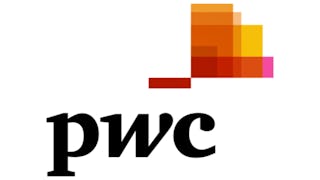Filter by
SubjectRequired
LanguageRequired
The language used throughout the course, in both instruction and assessments.
Learning ProductRequired
LevelRequired
DurationRequired
SkillsRequired
SubtitlesRequired
EducatorRequired
Explore the Analysis Course Catalog
 Status: Free Trial
Status: Free TrialSkills you'll gain: Data Storytelling, Requirements Elicitation, Risk Mitigation, Business Analysis, Business Process Modeling, Risk Analysis, Process Mapping, Process Optimization, Requirements Management, Risk Management, Business Requirements, Stakeholder Management, Work Breakdown Structure, Scope Management, Process Analysis, Stakeholder Engagement, Data Visualization Software, Excel Formulas, Microsoft Excel, Analysis
 Status: Free Trial
Status: Free TrialSkills you'll gain: Analytics, Business Analytics, Data Analysis, Microsoft PowerPoint, Data Presentation, Presentations, Excel Formulas, Data-Driven Decision-Making, Dashboard, Data Storytelling, Business Intelligence, Microsoft Excel, Customer Analysis, Data Visualization, Data Visualization Software, Data Literacy, Big Data, Verbal Communication Skills, Data Cleansing, Spreadsheet Software
 Status: Free TrialStatus: AI skills
Status: Free TrialStatus: AI skillsSkills you'll gain: Data Storytelling, Dashboard, Data Visualization Software, Plotly, Data Wrangling, Data Visualization, SQL, Generative AI, Interactive Data Visualization, Exploratory Data Analysis, Data Cleansing, Big Data, Jupyter, Matplotlib, Data Analysis, Statistical Analysis, Pandas (Python Package), Data Manipulation, Excel Formulas, Professional Networking
 Status: Free Trial
Status: Free TrialSkills you'll gain: Requirements Elicitation, Business Analysis, Process Analysis, Requirements Analysis, Digital Transformation, Business Process, Gap Analysis, Business Requirements, Business Transformation, Systems Analysis, Stakeholder Engagement, Data-Driven Decision-Making, Stakeholder Communications, Project Management, Change Management

Johns Hopkins University
Skills you'll gain: Clinical Trials, Clinical Research, Qualitative Research, Data Synthesis, Scientific Methods, Research Methodologies, Data Collection, Biostatistics, Analysis, Quantitative Research, Risk Analysis, Statistical Methods, Epidemiology, Statistical Analysis
 Status: Free Trial
Status: Free TrialUniversity of Toronto
Skills you'll gain: ArcGIS, Spatial Data Analysis, Spatial Analysis, Geographic Information Systems, Geospatial Mapping, GIS Software, Data Mapping, Data Visualization, Metadata Management, Query Languages, Global Positioning Systems, Quantitative Research, Data Compilation, Data Modeling, Typography, Data Manipulation, Data Processing, Data Storytelling, Design Elements And Principles, Image Analysis
 Status: Free Trial
Status: Free TrialUniversity of Michigan
Skills you'll gain: Statistical Analysis, Program Evaluation, Policy Analysis, Data Analysis, Statistical Methods, Public Policies, Statistical Hypothesis Testing, Policy Development, Analytical Skills, Forecasting, R Programming, Data-Driven Decision-Making, Research Design, Time Series Analysis and Forecasting

Yale University
Skills you'll gain: Investment Banking, Risk Management, Financial Market, Financial Regulation, Financial Services, Finance, Business Risk Management, Securities (Finance), Financial Policy, Enterprise Risk Management (ERM), Capital Markets, Behavioral Economics, Banking, Corporate Finance, Governance, Investments, Insurance, Underwriting, Derivatives, Market Dynamics
 Status: Free Trial
Status: Free TrialSkills you'll gain: Exploratory Data Analysis, Feature Engineering, Data Cleansing, Data Access, Data Analysis, Statistical Inference, Statistical Hypothesis Testing, Data Quality, Data Science, Probability & Statistics, Jupyter, Machine Learning, Data Manipulation, Pandas (Python Package), Statistical Analysis, Data Transformation, Artificial Intelligence

Georgia Institute of Technology
Skills you'll gain: Basic Electrical Systems, Electronic Components, Electrical Systems, Electrical Engineering, Engineering Analysis, Electronics, Engineering Calculations, Physics, Differential Equations

Stanford University
Skills you'll gain: Organizational Structure, Decision Making, Organizational Leadership, Organizational Change, Professional Networking, Strategic Decision-Making, Business, Social Sciences, Culture, Sociology, Analysis, Resource Management, Learning Theory, Innovation, Negotiation
 Status: Free
Status: FreePrinceton University
Skills you'll gain: Combinatorics, Algorithms, Theoretical Computer Science, Mathematical Theory & Analysis, Data Structures, Advanced Mathematics, Mathematical Modeling, Probability
Analysis learners also search
In summary, here are 10 of our most popular analysis courses
- IBM Business Analyst: IBM
- Data Analysis and Presentation Skills: the PwC Approach: PwC
- IBM Data Analyst: IBM
- Introduction to Business Analysis: IBM
- Introduction to Systematic Review and Meta-Analysis: Johns Hopkins University
- GIS, Mapping, and Spatial Analysis: University of Toronto
- Assisting Public Sector Decision Makers With Policy Analysis: University of Michigan
- Financial Markets: Yale University
- Exploratory Data Analysis for Machine Learning: IBM
- Linear Circuits 1: DC Analysis: Georgia Institute of Technology










